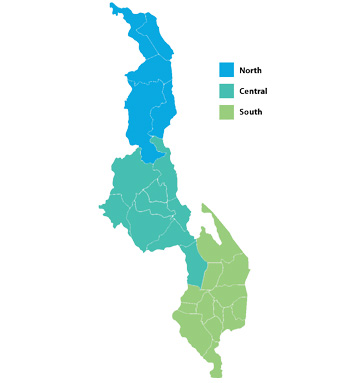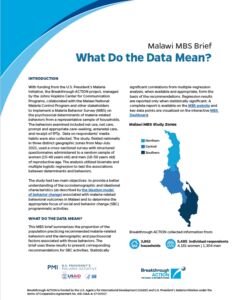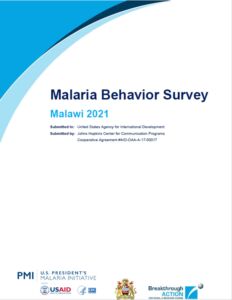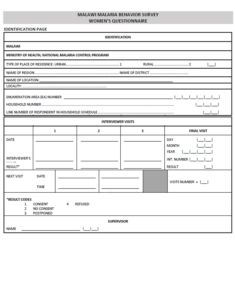Country Results
The Malawi Malaria Behavior Survey was fielded in May through July 2021. Survey results were analyzed in coordination with the National Malaria Control Program and were released in 2023. The survey was carried out by the Breakthrough ACTION project in Malawi in collaboration with the National Malaria Control Program, the U.S. President’s Malaria Initiative, and several other local organizations.
Study Zones

Survey Zones and Respondents
Key behaviors at a glance
90%
of caregivers of children under five with fever sought prompt and appropriate care the same day or the next day
55%
of respondents used a mosquito net every night of the week
63%


